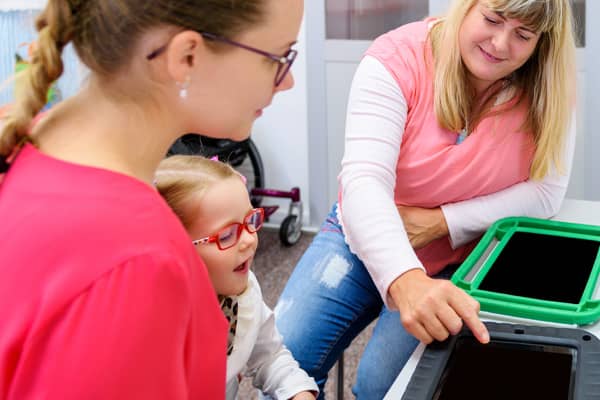Non-verbal communication refers to how people communicate without using spoken words. This form of communication includes gestures, facial expressions, body language, eye contact, and other visual cues that convey meaning and emotions. Non-verbal communication is crucial to human interaction, as it often conveys more information than words alone. For children, especially those with communication disorders, non-verbal communication can be a primary means of expressing themselves and understanding others.
Non-verbal communication is particularly important for children who struggle with verbal communication due to various disorders, such as autism spectrum disorder (ASD), developmental delays, or apraxia of speech. These children may rely heavily on nonverbal cues to interact with others, making it essential to develop and enhance their nonverbal communication skills.
Children with non-verbal communication challenges may face several difficulties in their daily lives. These challenges can impact their ability to connect with others, interpret social cues, and effectively express their needs and emotions. Some common effects of non-verbal communication challenges include:
Children struggling with non-verbal communication may find reading and understanding others' non-verbal signals challenging. This can lead to misunderstandings in social interactions and difficulty forming relationships.
Non-verbal communication becomes the primary mode of expression for non-verbal children. If these skills are underdeveloped, it can be challenging for them to convey their thoughts, feelings, and needs to others.
Difficulties with non-verbal communication can make it harder for children to engage in social interactions, leading to feelings of isolation and loneliness. They may avoid social situations where they feel unable to communicate effectively.
When children cannot communicate their needs or emotions effectively, they may become frustrated, anxious, or exhibit challenging behaviors as a way to cope with their communication difficulties.
Non-verbal communication is also crucial in educational settings. It's important to be aware that children with non-verbal communication difficulties may struggle to follow instructions, participate in classroom activities, or interact with peers and teachers. Proactive measures can help them overcome these challenges.
Speech Therapy plays a vital role in helping children develop and enhance their non-verbal communication skills. At NeuroKids, our experienced Speech-Language Pathologists (SLPs) are dedicated to supporting children with non-verbal communication challenges through tailored therapy plans that focus on building these essential skills.
For children who struggle with verbal communication, we introduce and develop alternative communication methods, such as augmentative and alternative communication (AAC) devices, sign language, or picture exchange communication systems (PECS). These tools can help your child express themselves more effectively without relying solely on speech.
We provide social skills training to help children interpret and use non-verbal communication cues, such as facial expressions, gestures, and body language. This training helps them navigate social interactions more successfully and build stronger connections with others.
Our therapy process begins with a clear goal in mind-to improve your child’s communication abilities. We start with a thorough assessment, evaluating both verbal and non-verbal communication skills to identify specific areas of difficulty and create a personalized therapy plan.
Our therapy sessions are not just about learning, but also about having fun. They are designed to be interactive and engaging, using play-based activities, role-playing, and visual aids to help children practice and improve their non-verbal communication skills in a fun and supportive environment.
Parents and caregivers are integral to the success of therapy. Our SLPs work closely with families to provide strategies and activities that can be practiced at home, ensuring that progress continues outside therapy sessions.
At NeuroKids, we are committed to helping children overcome non-verbal communication challenges and achieve their full communication potential.
NeuroKids is here to help if your child struggles with non-verbal communication challenges. Our dedicated team of SLPs is ready to provide the personalized care and support your child needs to develop solid non-verbal communication skills and build confidence in their interactions with others.
Don’t let communication difficulties hold your child back – contact NeuroKids today to schedule a consultation and start your journey toward improved communication.
